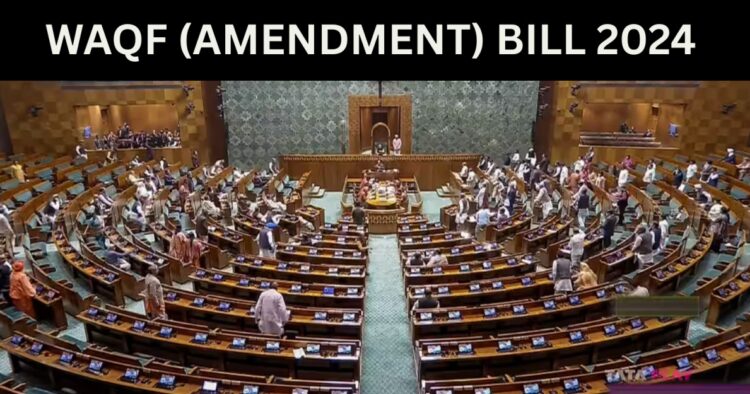- Lok Sabha passed the Waqf Amendment Bill at 2 AM after a heated 12-hour debate.
- Bill limits Waqf property donations, removes tribunal powers, and adds non-Muslim members.
- Opposition calls it unconstitutional; government says it stops illegal land grabs.
The Lok Sabha passed the Waqf Amendment Bill early on Thursday (April 3) after a 12-hour-long debate between the ruling government and the Opposition. Despite strong objections from Opposition parties, the bill was passed with 288 votes in favor and 232 against.
This bill seeks to amend the Waqf Act of 1995 and introduces major changes in the way Waqf properties are managed. It will now be introduced in the Rajya Sabha for further discussion and approval.
Key Provisions of the Bill
One of the major provisions of the bill is the inclusion of two non-Muslim members in Waqf boards. It also states that only practicing Muslims (for at least five years) can dedicate property to Waqf.
Another major change is that government property identified as Waqf will no longer belong to Waqf, and the local Collector will decide its ownership. The bill also ensures that Muslim women receive their rightful inheritance before any property is declared as Waqf. Special provisions have been included for widows, divorced women, and orphans.
The bill removes the power of Waqf tribunals to decide disputes over Waqf properties. Instead, senior government officers will have the final say in such matters.
Additionally, the government has introduced a major change by removing Section 40, which earlier allowed Waqf Boards to declare any land as Waqf property. Minority Affairs Minister Kiren Rijiju called this the “most draconian” provision of the Waqf Act. With this amendment, no land can now be arbitrarily taken over as Waqf property.
The bill also removes the ‘Waqf by user’ provision, which previously allowed land to become Waqf property based on long-term religious use. The power to decide Waqf ownership has been transferred to the District Collector, and disputes can now be appealed in the High Court within 90 days.
Opposition’s Strong Criticism
The Opposition strongly opposed the bill, calling it unconstitutional. Congress MP Gaurav Gogoi accused the government of trying to dilute the Constitution and target minorities. The AIMIM leader Asaduddin Owaisi went as far as tearing a copy of the bill in protest, comparing it to Mahatma Gandhi’s protest against British laws in South Africa.
The Congress also claimed that the bill was an attempt to “disenfranchise minorities” and alleged that the Joint Parliamentary Committee ignored their inputs while drafting it.
Government’s Defense of the Bill
The government strongly defended the bill, saying it focuses on property regulations and does not interfere in religious matters. Home Minister Amit Shah accused the Congress of appeasement politics and claimed that the 2013 Waqf Act amendment allowed Waqf boards to take over government and temple lands unfairly.
Shah pointed out several controversial Waqf property claims, including:
- Lutyens’ Delhi properties being declared Waqf land,
- A 400-year-old temple property in Tamil Nadu taken over by Waqf,
- Chandra Shekhar Azad Park in Prayagraj being claimed by Waqf.
He firmly stated, “You cannot donate someone else’s property. You donate something which is yours.”
Rijiju also highlighted cases in Kerala and Haryana where Christian and Sikh properties were claimed as Waqf land, leading to legal battles. He assured that the new law will prevent such misuse.
With the Lok Sabha’s approval, the bill will now be introduced in the Rajya Sabha for further discussion. If passed there, it will become law. The debate over this bill is expected to continue, as Opposition parties remain firm in their opposition, while the government insists that the amendment is necessary to protect public and religious properties from misuse.
ALSO READ: “Voting Concludes: Lok Sabha Passes Waqf (Amendment) Bill 2024”

















Comments